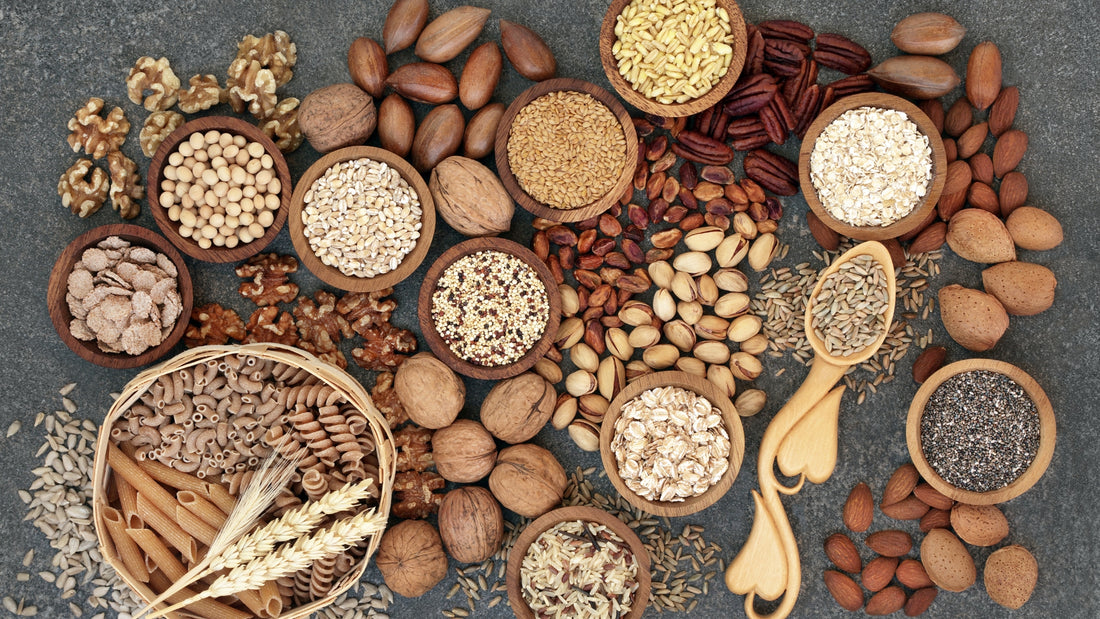In the dynamic world of nutrition, trends may come and go, but one dietary component stands the test of time: fiber. Often overlooked amidst the buzz surrounding macronutrients and superfoods, fiber quietly plays a pivotal role in nurturing our overall health and well-being. From promoting digestive health to reducing the risk of chronic diseases, embracing a high-fiber diet is a cornerstone of a balanced lifestyle. Let's delve deeper into the importance of fiber and how it can transform your health for the better.
Understanding Fiber: The Unsung Hero of Nutrition
Fiber, a type of carbohydrate found in plant-based foods, is often categorized into two main types: soluble and insoluble. Soluble fiber dissolves in water and forms a gel-like substance in the digestive tract, while insoluble fiber adds bulk to stool, aiding in regular bowel movements. Both types of fiber are essential for maintaining optimal health and function of the digestive system.
Digestive Health: Fiber's Forte
One of fiber's most well-known benefits is its ability to promote digestive health. By adding bulk to stool and facilitating regular bowel movements, fiber helps prevent constipation and keeps the digestive system running smoothly. Additionally, fiber acts as a prebiotic, nourishing the beneficial bacteria in the gut and promoting a healthy balance of microflora.
Research indicates that a high-fiber diet may lower the risk of developing common digestive disorders such as diverticulosis, hemorrhoids, and irritable bowel syndrome (IBS). By keeping the digestive tract healthy and regular, fiber contributes to overall digestive wellness and comfort.
Heart Health: Fiber's Heartfelt Impact
A high-fiber diet is not only good for the gut but also for the heart. Soluble fiber, in particular, has been shown to help lower LDL cholesterol levels, commonly referred to as the "bad" cholesterol. By binding to cholesterol particles and promoting their excretion, fiber helps prevent the buildup of plaque in the arteries, reducing the risk of heart disease and stroke.
Studies have also suggested that fiber-rich diets may help lower blood pressure and inflammation, further supporting cardiovascular health. By incorporating fiber-rich foods into your meals, you can nourish your heart and protect against cardiovascular disease.
Blood Sugar Management: Fiber's Balancing Act
For individuals with diabetes or those at risk of developing the condition, maintaining stable blood sugar levels is essential. Fiber plays a crucial role in regulating blood sugar by slowing down the absorption of glucose into the bloodstream. This helps prevent spikes and crashes in blood sugar levels, promoting better glycemic control and reducing the risk of type 2 diabetes.
Incorporating fiber-rich foods into meals can help individuals with diabetes manage their blood sugar levels more effectively and reduce their reliance on insulin and other medications.
Cancer Prevention: Fiber's Protective Shield
The link between fiber consumption and a reduced risk of certain cancers, particularly colorectal cancer, is well-established. Fiber-rich diets help promote regular bowel movements, reducing the time that potentially harmful substances remain in contact with the colon lining. Additionally, fiber ferments in the colon, producing short-chain fatty acids that may help protect against cancer development.
Studies have shown that individuals who consume higher amounts of dietary fiber have a lower risk of developing colorectal cancer. By prioritizing fiber-rich foods such as fruits, vegetables, whole grains, and legumes, you can help shield yourself against the risk of cancer and promote long-term health.
Embracing a Fiber-Rich Diet: Practical Tips and Tricks
Incorporating more fiber into your diet doesn't have to be daunting. Here are some practical tips to help you boost your fiber intake:
Start your day with a fiber-rich breakfast, such as oatmeal topped with fresh fruit and nuts.
Snack on raw vegetables with hummus or whole fruit for a fiber-filled pick-me-up.
Choose whole grains such as brown rice, quinoa, and whole wheat pasta over refined grains.
Include legumes such as beans, lentils, and chickpeas in soups, salads, and stir-fries.
Experiment with adding chia seeds, flaxseeds, or psyllium husk to smoothies, yogurt, or baked goods for an extra fiber boost.
By making small but intentional changes to your diet, you can reap the myriad benefits of fiber and support your overall health and well-being.
References:
Mayo Clinic: Dietary fiber: Essential for a healthy diet
Harvard T.H. Chan School of Public Health: The Nutrition Source - Fiber
American Heart Association: Dietary Fiber and Cardiovascular Disease
American Diabetes Association: Dietary Fiber
National Cancer Institute: Cancer Prevention Overview
In conclusion, embracing a high-fiber diet isn't just about meeting a nutritional recommendation—it's about empowering yourself to live a healthier, more vibrant life. By prioritizing fiber-rich foods and making conscious dietary choices, you can unlock the transformative power of fiber and embark on a journey toward improved health and vitality. So, go ahead, embrace the fiber, and let its nourishing embrace guide you toward optimal well-being.

